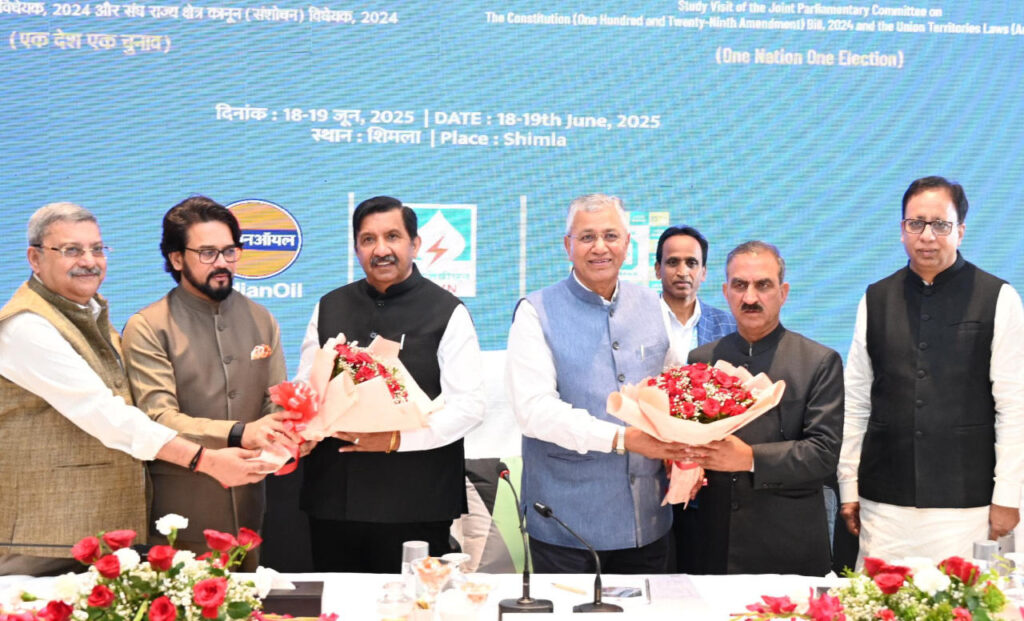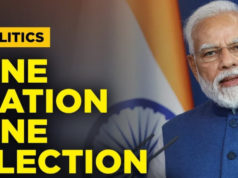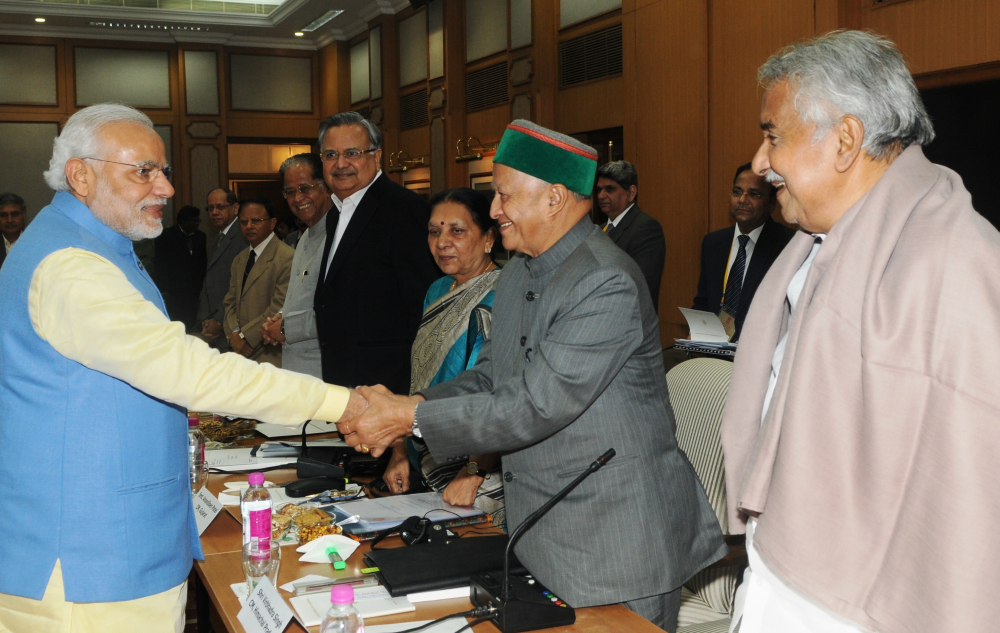Sukhvinder Sukhu Reiterates Congress Opposition, Seeks Safeguards for Democracy

Shimla: The Joint Parliamentary Committee (JPC) on the Constitution (One Hundred and Twenty-Ninth Amendment) Bill, 2024 and the Union Territories Laws (Amendment) Bill, 2024 held discussions on the proposed ‘One Nation-One Election’ framework with Himachal Pradesh Chief Minister Sukhvinder Singh Sukhu and Deputy Chief Minister Mukesh Agnihotri in Shimla today.
The committee, headed by senior parliamentarian P.P. Choudhary, was welcomed with traditional Himachali caps and shawls by the Chief Minister. Detailed deliberations were held on the feasibility and implications of conducting simultaneous elections across the country.
During the meeting, the committee engaged in comprehensive discussions on simultaneous elections, which is the central idea behind the ‘One Nation-One Election’ proposal. Member of Parliament Anurag Thakur, representing the Hamirpur constituency, was also present as a member of the committee.
Himachal Congress Voices Opposition, Suggests Holding By-Polls
Speaking to the media after the meeting, CM Sukhu made it clear that the Congress Party opposes the One Nation-One Election Bill, but participated in the discussions to present constructive inputs.
“We have suggested that a provision be made for holding by-elections in a year to uphold democratic values,” said the Chief Minister.
He emphasised that while the state government had objections to the centralisation of electoral cycles, safeguards must be built to preserve federalism and democratic representation, especially in cases where elected representatives resign, pass away, or are disqualified mid-term.
What is ‘One Nation-One Election’?
The ‘One Nation-One Election’ proposal seeks to synchronise elections for the Lok Sabha and all State Legislative Assemblies. The idea behind this electoral reform is to reduce the frequency of elections, cut administrative and financial costs, and ensure uninterrupted governance by avoiding the imposition of the Model Code of Conduct at different intervals.
While the proposal is supported by the central government for its potential to streamline the electoral process, several opposition parties, including the Congress, have raised concerns about its impact on federalism, regional autonomy, and democratic representation. Experts have also pointed out the significant constitutional and logistical challenges in aligning election cycles across diverse states.
To implement this reform, amendments will be required in the Constitution, the Representation of the People Act, and other related laws. Additionally, ratification by at least half of the state legislatures would be necessary.
The JPC is conducting similar consultations with other state governments and stakeholders across the country. Feedback from states like Himachal Pradesh will be considered while preparing the committee’s final report and recommendations on the matter.







